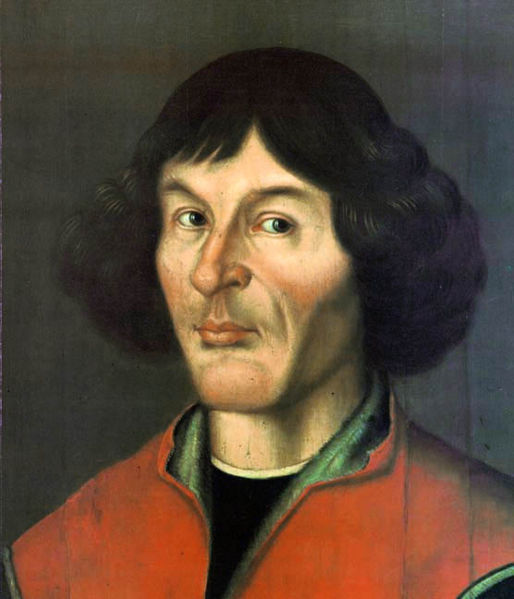 More exciting DNA research today - this time it has been used to identify the remains of 16th-century astronomer Nicolaus Copernicus.
More exciting DNA research today - this time it has been used to identify the remains of 16th-century astronomer Nicolaus Copernicus.
Copernicus is the guy who famously declared (much to the disgust of the Catholic church) that the Earth is not the centre of the universe, as it is orbiting the Sun. Other astronomers had suggested this before him, such as Aristarchus of Samos, an ancient Greek astronomer who lived in the third century BC. But the idea never caught on until Copernicus, and for that reason he's often described as "the father of modern astronomy".
People have apparently been looking for his tomb for a couple of centuries, and the latest search began in 2004, at the request of the local bishop. Scientists figured he was probably buried at Frombork Cathedral in northern Poland, because he served as a priest there. But there were hundreds of sets of remains under the cathedral's floor.
Eventually they found a likely candidate - the bones of a 70-year-old man (this is how old Copernicus was when he died). Forensic reconstruction of the skull showed that the man had a broken nose and a scar above his forehead - both features shown in a self-portrait of Copernicus as an old man. To clinch the case, researchers from Uppsala University in Sweden compared DNA from the skull with that from two strands of hair found inside a book that Copernicus owned (and now kept in a library at Uppsala University). They announced today that the two sets of DNA match.
I'm not sure what's happening to the bones - hopefully they'll be left under the floor so he can continue to rest in peace, though I guess he'll get a lot more visitors now. In his memory, here's a quote about Copernicus written by the all round literary genius Goethe:
"Of all discoveries and opinions, none may have exerted a greater effect on the human spirit than the doctrine of Copernicus. The world had scarcely become known as round and complete in itself when it was asked to waive the tremendous privilege of being the centre of the universe. Never, perhaps, was a greater demand made on mankind - for by this admission so many things vanished in mist and smoke! What became of our Eden, our world of innocence, piety and poetry; the testimony of the senses; the conviction of a poetic - religious faith? No wonder his contemporaries did not wish to let all this go and offered every possible resistance to a doctrine which in its converts authorized and demanded a freedom of view and greatness of thought so far unknown, indeed not even dreamed of."